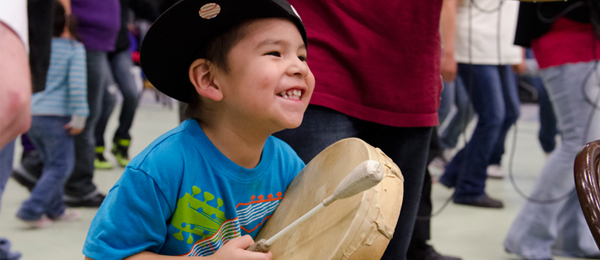Overview:
Assessing the health status of urban Indigenous populations using the current health information systems available to public health is challenging. In 2016, the Southwest Ontario Aboriginal Health Access Centre (SOAHAC) led a community-based research project, Our Health Counts London1, that gathered missing health information from over 750 urban Indigenous people that lived, worked or accessed health and/or social services in London, Ontario. Our Health Counts (OHC) aims to both address the health information gap and ensure that urban Indigenous communities have ownership, access, control, and possession of data that impacts their health and wellbeing.
Our Health Counts incorporates Indigenous specific measures to complement more universally accepted health indicators. The project’s findings on a range of topics of public health importance were released in 2018 and can be accessed on the SOAHAC website - Our Health Counts London.

Selected Findings:
- The number of urban Indigenous people in the London area is much higher than the numbers estimated by Statistics Canada. Our Health Counts London estimated there were between 17,000 and 22,000 Indigenous adults in London.
- One in five (22%) of Indigenous adults in London were precariously housed or experiencing homelessness at the time of the survey, a rate much higher than the average of Canadian adults (4%).
- Only 25% of Indigenous adults in London rated their health as excellent or very good compared to 60% of adults (12 years+) in Middlesex-London.
- Over half (58%) of Indigenous adults said their overall health and wellbeing had been affected by financial hardship in the previous 12 months.
- Less than a third (31%) of Indigenous adults in London reported very good or excellent mental health compared to 70% of the general Ontarian population.
- Less than two thirds (60%) of Indigenous adults in London rate their oral health as good, very good, or excellent. 85% of Canadian adults rate their oral health as good, very good, or excellent.
- Over 4 in 10 Indigenous adults have thought about dying by suicide compared to 1 in 10 adults in Ontario.
- 15% of Indigenous adults in London were diagnosed with diabetes by their healthcare provider. This is over double the diabetes rate (6%) of the general adult population in Middlesex-London.
- 67% of Indigenous adults in London smoked compared to 17% of adults (aged 12 years+) in Middlesex-London.
- 58% of Indigenous adults in London used cannabis in the past year. 12.1 % of Ontarian adults used cannabis in the past year.
- Over a quarter (26%) of Indigenous adults in London have been treated unfairly by health care professionals because of their Indigenous identity.
More Information:
More detailed urban Indigenous health status information is available for viewing on the SOAHAC website. Requests for further detailed information, including direct study references, can be made in writing and sent to: info@soahac.on.ca. SOAHAC asks to be informed of your intent to use the data for any reason.
References:
1. Southwest Ontario Aboriginal Health Access Centre [Internet]. London, ON. Our health counts London, ca 2018 [cited 2018 Nov 27] Available from: http://soahac.on.ca/our-health-counts/
Last modified on: January 7, 2019